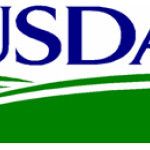- Settore: Government
- Number of terms: 41534
- Number of blossaries: 0
- Company Profile:
A valuable leguminous crop for forage or hay used in livestock feeding.
Industry:Agriculture
The family name of a group of organic chemical compounds that includes methanol, ethanol, isopropyl alcohol, and others. Ethanol is produced from crops or residues with a high carbohydrate content. Alcoholic beverages contain ethanol, and ethanol is blended with gasoline to produce gasohol. Most industrial ethanol produced in the U.S. is from corn wet-milling.
Industry:Agriculture
Trade name for daminozide, a plant regulator and therefore classed as a pesticide, that makes apples redder, firmer, and less likely to drop off trees before harvest. It was also used to a lesser extent on peanuts, tart cherries, concord grapes, and other fruits. Alar was suspended by the Environmental Protection Agency in 1989 following a controversy over allegations of cancer risk to children from residues of Alar and its breakdown product UDMH on apples and in apple products.
Industry:Agriculture
Contamination of the atmosphere by substances that, directly or indirectly, adversely affect human health or welfare. Air pollution results from human activities, both deliberate releases (as from smokestacks) and fugitive emissions (as dust blown from streets or fields), and from natural sources, including sea spray, volcanic emissions, pollen, etc. The Clean Air Act authorizes the Environmental Protection Agency to regulate air pollution (see National Ambient Air Quality Standards).
Industry:Agriculture
An Environmental Protection Agency program, administered cooperatively with USDA's Sustainable Agriculture Research and Education (SARE) program, to fund research projects that reduce the risk of pollution from pesticides and soluble fertilizers.
Industry:Agriculture
A designation intended to protect farmland and farming activities from incompatible nonfarm uses. Agricultural zoning can specify many factors, such as the uses allowed, minimum farm size, the number of nonfarm dwellings allowed, or the size of a buffer separating farm and nonfarm properties.
Industry:Agriculture
Wastes, emissions, and discharges arising from farming activities. Causes include runoff and leaching of pesticides and fertilizers; pesticide drift and volatilization; erosion and dust from cultivation; and improper disposal of animal manure and carcasses. Some agricultural pollution is point source, e.g., large feedlots, which require permits under the Clean Water Act, but much is nonpoint source, meaning that it derives from dispersed origins, e.g., blowing dust or nutrients leaching from fields. As most pollution control programs have focused on particular categories of point sources, nonpoint and unregulated point sources account for an increasingly large proportion of remaining pollution. Based on state surveys, the Environmental Protection Agency concludes that agricultural sources account for over one-half the pollution impairing surface water quality in the U.S. The Clean Water Act mandates that states develop and implement management programs to control nonpoint sources of water pollution.
Industry:Agriculture
A system of farming that encourages production of a variety of plants and animals and their products as opposed to monoculture or large-scale specialization. Advocates of diversification argue that it provides greater income stability. Specialized farms benefit from economies of size.
Industry:Agriculture
A planning term which defines an area in which farming is the preferred economic activity. Districts may be voluntarily created by landowners who receive benefits, usually in return for not developing the land for a certain number of years, or they may be designated in a local land use plan.
Industry:Agriculture
An institution of the Farm Credit System that has direct lending authority to make short-, intermediate- and long-term loans to agricultural producers, rural homeowners and some farm-related businesses.
Industry:Agriculture
